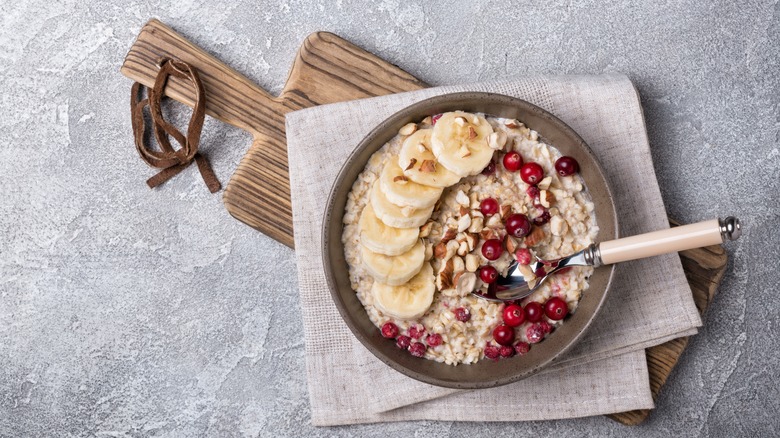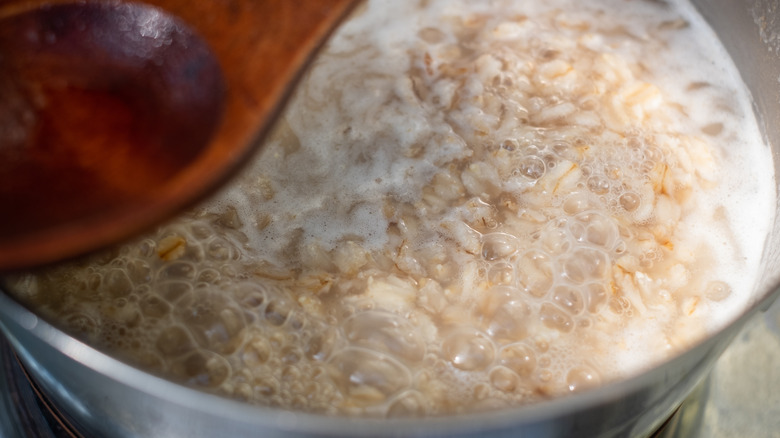Why Does Oatmeal Boil Over So Easily?
Oatmeal can be served as a popular breakfast option, sweet or savory, or even added to granola and baked goods. Since whole or steel-cut oats take longer to cook, MasterClass explains that most morning porridge routines start with boiling rolled or instant oats in milk or water. However, if you've ever made a bowl of oatmeal, you're aware of how easily it can spill over. So rather than face another oat explosion, we're solving this conundrum and giving you some tips to make the best porridge yet.
Depending on the type of oat, texture can vary from toothsome to soft; however, one thing that doesn't change is the nutritional value. According to Healthline, oats are a nutrient-dense food that boasts an abundance of protein, fiber, and antioxidants, which can promote healthy gut bacteria, lower cholesterol, and manage weight.
While it's the responsible breakfast choice, that doesn't mean it has to be dull. Bon Appétit explains that a good bowl of oatmeal is loaded with stuff, whether that be spices, fruits, nuts, jams, chocolate, savory compotes, or a poached egg — oatmeal is a blank canvas that demands to be painted. How oats are cooked can also make a difference in taste and texture, which can also be the trick to preventing boil-overs.
Blame it on the swelling starches
Watching a pot boil and bubble is satisfying because it indicates that things are happily cooking away. However, when it comes to oatmeal, those flecks of oats tend to overflow out of the pot a little too easily. But what's the reason for this spillage?
As the oatmeal cooks in the microwave or on the stovetop, Cook's Illustrated explains that the oat's starches swell and uncoil to form a mesh that thickens, making it hard for water bubbles to escape. Eventually, so many bubbles form that the oats are pushed up and out of the pot.
While there are various tricks to avoid the mess, like placing a wooden utensil over the pot or relying on a healthy dose of fat to weaken the starch mesh, the solution is a lot simpler for oatmeal. Prevention recommends using a larger and wider bowl to stop microwave mishaps, whereas frequent stirring when cooking oats stovetop can also help hinder any boiling over.

